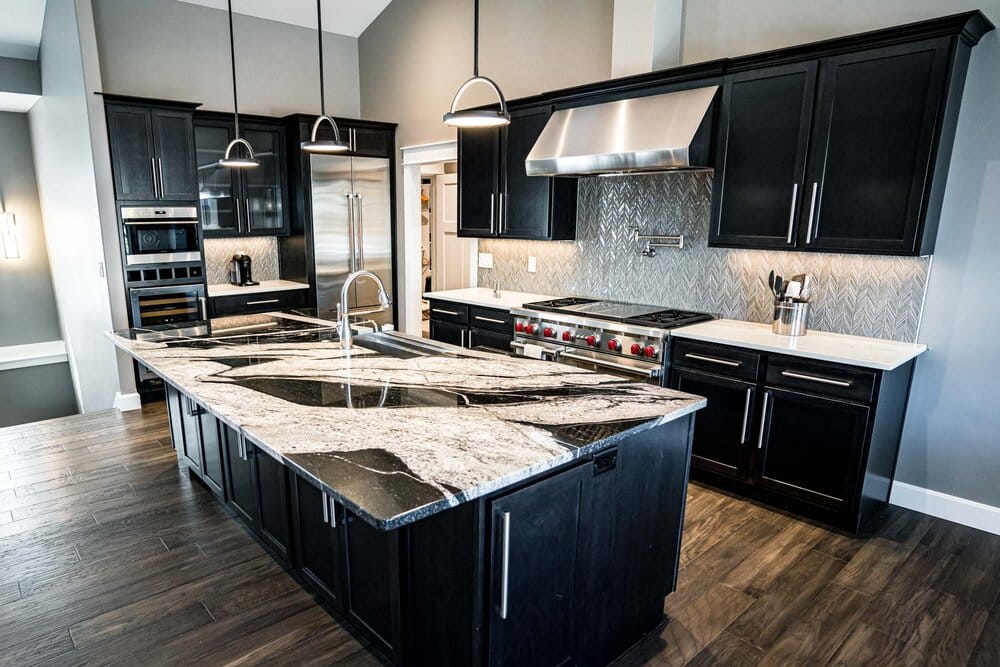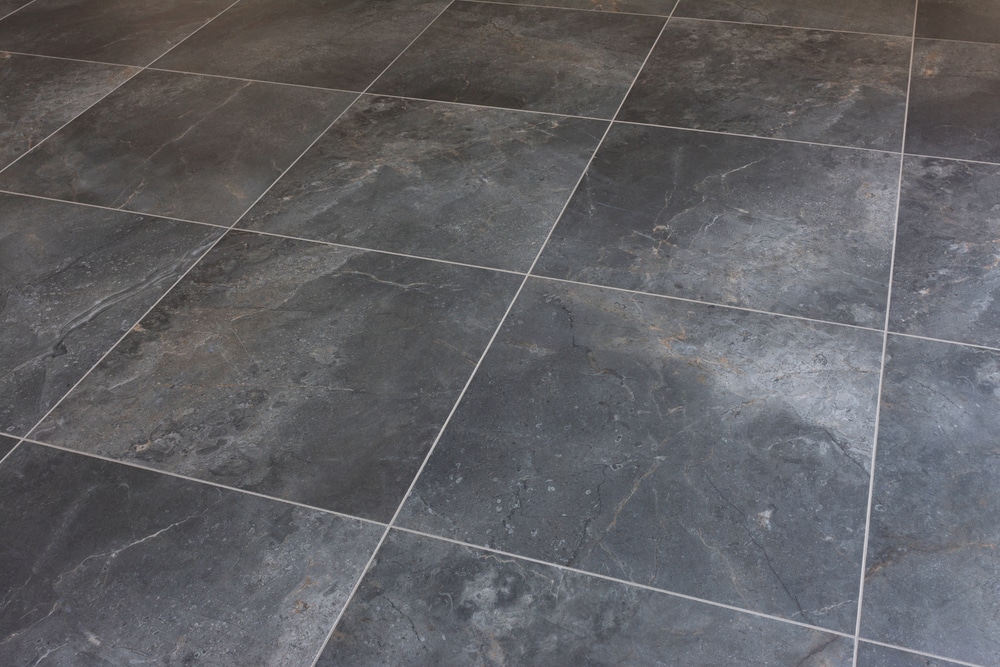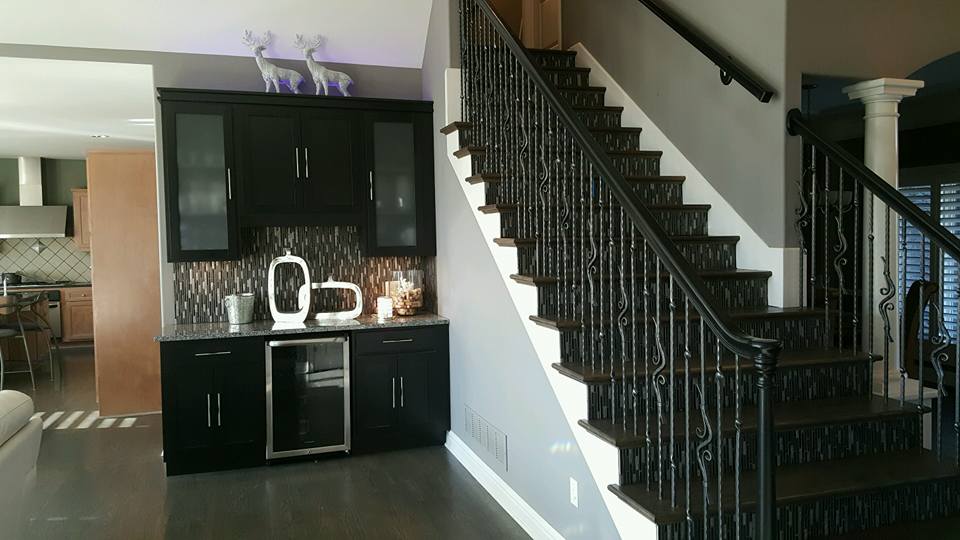
Tile flooring has become the go-to choice for homeowners seeking the perfect balance of durability, style, and practicality. With its ability to withstand heavy foot traffic, resist moisture, and complement virtually any design aesthetic, tile offers unmatched versatility for modern homes.
But here’s the challenge: not all tiles work equally well in every space. The porcelain that performs beautifully in your kitchen might not be the best choice for your bedroom. The natural stone that adds elegance to your living room could become a slip hazard in your bathroom.
This guide will walk you through everything you need to know about selecting the perfect tile for each room in your home. You’ll discover which materials work best in high-moisture areas, how to balance comfort with durability, and which features to prioritize based on your specific needs.
Understanding Your Tile Options
Before diving into room-specific recommendations, let’s explore the main types of tile flooring available and what makes each unique.
Ceramic Tile
Ceramic tiles are made from clay and other natural materials, then kiln-fired at high temperatures. They’re the most affordable option and work well in most residential applications. However, they’re more porous than other options, making them less suitable for areas with heavy moisture exposure.
Pros: Budget-friendly, easy to install, wide variety of styles
Cons: More susceptible to chipping, requires sealing in wet areas
Porcelain Tile
Technically, a subset of ceramic, porcelain tiles are fired at higher temperatures and are much denser. This makes them virtually waterproof and incredibly durable. They’re available in styles that convincingly mimic wood, stone, and other materials.
Pros: Extremely durable, water-resistant, low maintenance
Cons: Higher cost, can be challenging to cut during installation
Natural Stone
Including marble, granite, slate, and travertine, natural stone tiles bring authentic beauty and unique character to any space. Each piece is one-of-a-kind, creating floors with natural variation and timeless appeal.
Pros: Unmatched natural beauty, increases home value, long-lasting
Cons: Requires regular sealing, can be expensive, and some types are prone to staining
Glass Tile
Glass tiles reflect light beautifully and are completely non-porous, making them ideal for wet areas. They’re available in countless colors and finishes, from clear to frosted to iridescent.
Pros: Non-porous, reflects light, unique aesthetic options
Cons: Can show water spots, limited to smaller sizes, and higher cost
Room-by-Room Tile Selection Guide 
Kitchen: Prioritize Performance Over Everything
Your kitchen demands tiles that can handle spills, splashes, and constant foot traffic. Durability and easy maintenance should be your top priorities.
Best choices: Porcelain or high-fired ceramic tiles work exceptionally well in kitchens. Look for tiles with a PEI (Porcelain Enamel Institute) rating of 4 or 5, indicating they can withstand heavy traffic and abrasion.
For a luxurious look, consider porcelain tiles that mimic natural stone or hardwood. These give you the aesthetic appeal without the maintenance headaches of actual stone or the water sensitivity of real wood.
Size considerations: Larger tiles (12×12 inches or bigger) mean fewer grout lines, which translates to easier cleaning and a more seamless appearance.
Bathroom: Water Resistance is Non-Negotiable
Bathrooms present unique challenges with high humidity, standing water, and the need for slip resistance. Your tile choice can make or break the functionality of this essential space.
Best choices: Porcelain tiles are your safest bet, offering superior water resistance. Natural stone can work beautifully, but requires proper sealing and ongoing maintenance.
Safety first: Choose tiles with a textured surface or those specifically rated for slip resistance. Smaller tiles (like mosaics) provide more grout lines, which can actually improve traction.
Pro tip: Consider the coefficient of friction (COF) rating. For wet areas, look for tiles with a COF of 0.42 or higher.
Living Room: Balance Style and Comfort
Your living room is where aesthetics take center stage, but comfort shouldn’t be overlooked. This is where you’ll spend considerable time, so choose tiles that support your lifestyle.
Best choices: Large-format porcelain tiles create a sophisticated, seamless look. Natural stone tiles add timeless elegance and can increase your home’s value.
Comfort factor: Tile can feel cold underfoot, especially in winter. Consider radiant floor heating systems, or plan to use area rugs strategically to add warmth and comfort.
Design impact: Light-colored tiles can make spaces appear larger, while darker tiles create a more intimate atmosphere. Consider your room’s natural light when making your selection.
Bedroom: Comfort Meets Style
Bedrooms require a different approach since bare feet are the norm and comfort is paramount. You’ll want tiles that feel pleasant underfoot while maintaining visual appeal.
Best choices: Ceramic or porcelain tiles that mimic natural materials work well. Wood-look porcelain tiles are particularly popular, offering the warmth of wood visually without the maintenance concerns.
Sound considerations: Tile can amplify footstep sounds, which might disturb others in the home. Consider acoustic underlayments during installation if sound transmission is a concern.
Temperature control: As with living rooms, area rugs and radiant heating can address the coolness factor that comes with tile flooring.
Outdoor Spaces: Weather the Elements
Patios, decks, and other outdoor areas need tiles that can handle temperature fluctuations, moisture, and UV exposure without cracking or fading.
Best choices: Porcelain pavers and natural stone tiles designed for outdoor use are your best options. These materials resist freeze-thaw cycles and won’t fade under constant sun exposure.
Safety requirements: Slip resistance becomes even more critical outdoors, where rain, snow, and pooled water are common. Look for tiles with heavily textured surfaces.
Installation note: Proper drainage is crucial for outdoor tile installations to prevent water damage and ensure longevity.
Installation and Maintenance Considerations 
Professional vs. DIY Installation
While ceramic tiles might be manageable for experienced DIYers, porcelain and natural stone often require professional installation. The cost of professional installation typically pays for itself through proper execution and warranty protection.
Key installation factors:
- Proper substrate preparation
- Appropriate adhesive selection
- Correct spacing and leveling
- Professional sealing (for natural stone)
Keeping Your Tiles Looking Their Best
Different tile types require different maintenance approaches:
Daily maintenance: Sweep or vacuum regularly to prevent dirt from scratching surfaces. Clean spills immediately to prevent staining, especially on natural stone.
Weekly cleaning: Use pH-neutral cleaners for most tile types. Avoid acidic cleaners on natural stone, as they can cause etching and damage.
Annual maintenance: Natural stone tiles need resealing annually or biannually, depending on the specific material and usage levels.
Make Your Tile Selection with Confidence
Choosing the right tile for each room doesn’t have to be overwhelming. By prioritizing the specific demands of each space—whether that’s water resistance in bathrooms, durability in kitchens, or comfort in bedrooms—you’ll make selections that serve you well for years to come.
Remember that quality installation is just as important as quality materials. Don’t hesitate to consult with professionals who can guide you through both material selection and installation requirements.
Ready to transform your space with the perfect tile flooring? Start by identifying your highest-priority room and use this guide to narrow down your options. Your dream floors are closer than you think.





Proudly Serving: Kansas City, Leawood, Lenexa, Mission, Olathe, Overland Park, Shawnee, Blue Springs, Lee’s Summit, Liberty, Raymore, the entire KC Metro Area & Lake of the Ozarks.




